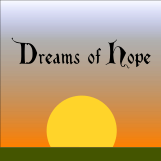Surat
One of the major cities of Ikela, located where the Ind river splits into the Jao and the Sheo before flowing into the bay.

Population
Roughly 18,000. 80% human (and -touched), 10% zandolit, and 10% other.
Economy
Much of Surat's wealth comes from trade with the colonies. Heavier goods are floated down the Ind and either shipped overland or sent in barges down the Jao or Sheo. In return significant goods flow upriver to the river-side colonies. Some trade with the Nightmare Scar tribal group to the south-west.
Surat is relatively poor and subsists on agriculture. The wealth is concentrated in the families (that of Sura itself and the Jalshea Trading company that monopolizes the local colony trade, owned by the Ajagar family). Strong inequality is present. The profits from the trade mostly flow to the noble families and onward into the main part of the country, with little filtering down to the common folk. The nobles prefer hiring "cultured" servants from the bigger cities, leaving locals to mainly be sharecroppers and free farmers. There is a small middle class of skilled tradesfolk, but the area is dependent on goods coming up-river from the manufactories to the east and north.
History
Founded on the site of a much older city that was founded during Ikela's golden age but mostly abandoned after the coming of the Dragon Tyrant, modern Surat is about 45 years old. A mix of ancient buildings, remodeled after the city was re-settled, and new-style buildings (in a mix of styles). The increased focus on the colonies in the last two decades has given it a much needed shot in the arm
Points of Interest
- Western Market. Open air market, mostly used for foodstuffs and locally-produced goods.
- Sura Harbor. An ancient harbor right near the fork in the river. Protected by a pair of rock breakwaters, it mainly caters to heavy cargo barges coming in both directions.
- Sura House (the palace/residence of the ruling Sura family). A remnant of the old days, the core structure pre-dates the Dragon Tyrant.
- Temple of the Congregation United. Ecumenical (divine-oriented) temple. High priestess is Aeshia Sura, sister to lord Ishval Sura. Her particular patron is Lae Loara, in her aspect as patron of the wilds.
- Jalshea Trading Company headquarters. Owned by the Ajagars, the Jalshea Trading Co. has a local monopoly on shipping to and from the colonies and maintains several large plantations on the south side of the Sheo. Always looking to expand and find new markets, the JTC owns a large chunk of the city as well.
- Inn of Bountiful Waters. The "high class" inn in town. Caters to traveling nobles and the religious.
- Scholastica Sura. The Scholastica is a branch of one of the larger orders dedicated to the preservation and recovery of old knowledge. The few arcanists in Surat are members of the Scholastica. The Scholastica is neutral in all political squabbles.
- House of Reflections. Home to the local branch of Listeners, those dedicated to hearing and communing with the kami. Extremely conservative.
- Covered market. High-end goods, as well as auction space used for "curiosities" and loads of exotic materials coming from the colonies or tribal trading parties.
- Open Road Inn. Competitors to #6. Specializes in entertainment, including much found scandalous by the upper classes. Doesn't mean they don't come, however.
Rulership
Surat is home to one of the First Families, the Sura family. The head of the Sura is Ishval Sura, a human male in his 50s. Known for his conservatism and devout reverence for both the gods and the local kami, he is often accused of putting religious duties above the needs of the common folk, while he and his family wallow in unearned wealth and claim it to be the blessing of the gods and spirits.
The other major family here is the Ajagar family, who are very heavy into the colony trade and own many large plantations. They are traditionally strong allies to the Sura family and are categorized as part of the Second Families. The head of Ajagar is Reginald Ajagar, a human male in his mid 30s. Young and driven, Reginald has been involved in the colonies and strongly favors development and expansion. He notoriously cares little for the will of the gods or the warnings of the spirits.
Factions
- Gardeners -- the Sura family and Temple. Values: Conservative growth, piety, nobility. Believe that unless managed carefully, growth will destroy everything. Status quo is god. Gods bless those who don't rock the boat and know their place.
- Voices of the River -- The local Listeners and druids. Anti-growth. Believe that man damages the environment and calls down the wrath of the kami on them. And are willing to help be the wrath of the kami, even if the kami aren't ready for that yet.
- Commercialists -- Ajagar Family and other colonial families. Populists…or rather using the populace as cover. Mainly interested in growth and wealth. Non-religious.
- Populares -- Rabble-rousers among the people. Not revolutionaries, but "advocating for the good of the people".
- Scholastics -- want to learn more about the reweaving and other effects. Will pay for artifacts & knowledge.
- Laughing Ghosts -- Local "underworld" organization. Mainly smugglers, thieves, and "vice" (drugs and prostitution). Head is The Laughing Man, aka The Ghost of Surat.
